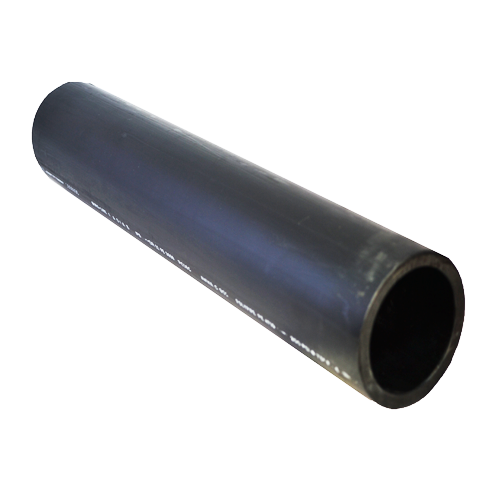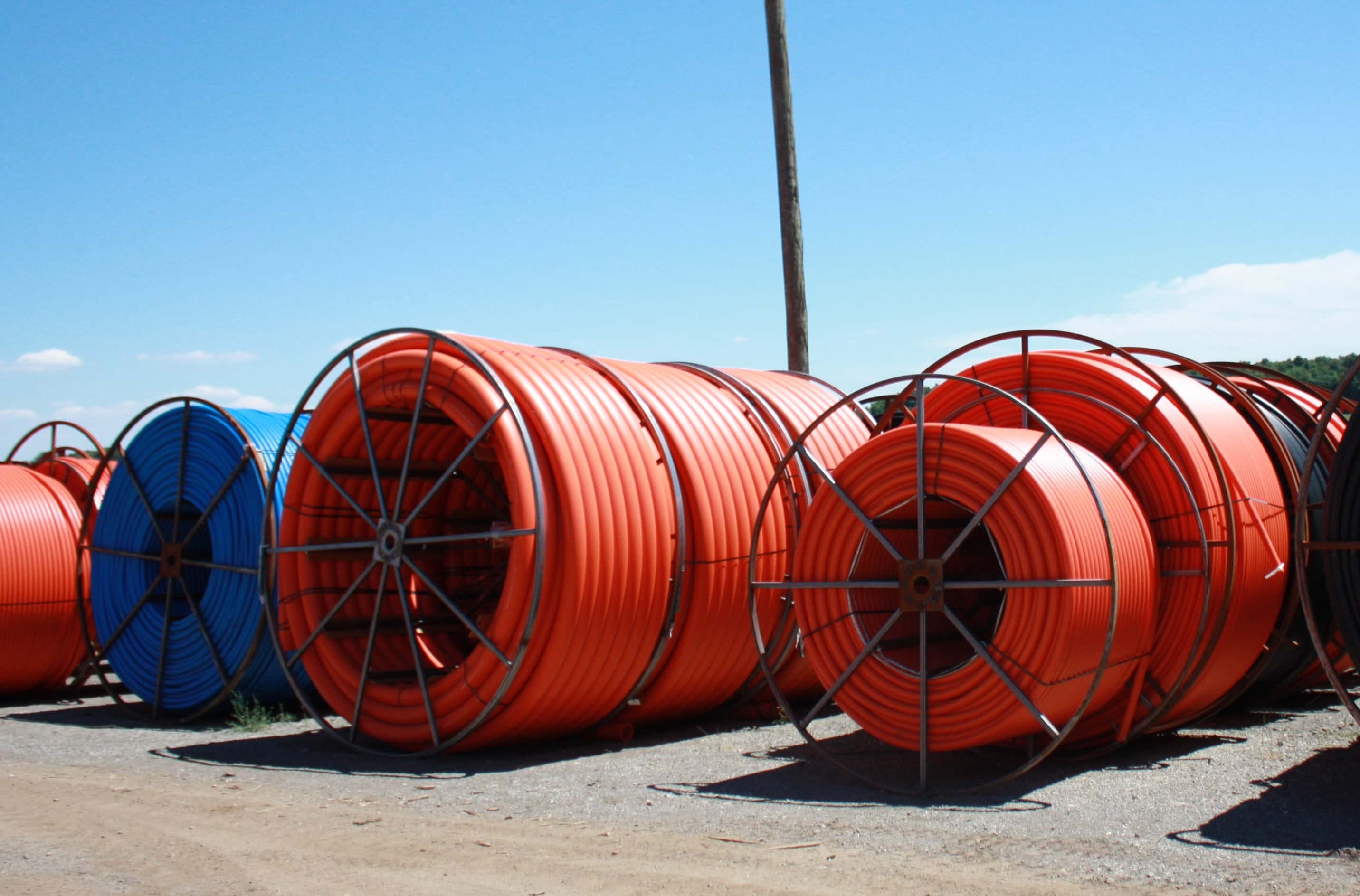custom hdpe pipe manufacturing Midland TX: Breakthroughs Shaping the Market
Wiki Article
A Comprehensive Guide to the Different Uses HDPE Pipeline in Building And Construction and Industry
HDPE pipelines have actually become an essential part in modern building and construction and commercial applications. Their special residential or commercial properties, such as resistance to corrosion and light-weight style, make them ideal for a vast array of usages. From water systems to farming watering, HDPE pipelines offer options that enhance effectiveness and sustainability. Recognizing their diverse applications is important for professionals aiming to optimize facilities. What details advantages do these pipes give each field?Water and Distribution Systems
Water system and distribution systems are important components of city infrastructure, usually relying upon high-density polyethylene (HDPE) pipelines for their toughness and effectiveness. These systems transport potable water from treatment centers to consumers, making certain access and safety and security. HDPE pipes are preferred for their resistance to corrosion, chemicals, and extreme temperature levels, which enhances their long life and reduces maintenance prices. Furthermore, their lightweight nature enables less complicated installation and transportation, making them excellent for numerous urban and rural applications.The adaptability of HDPE pipes allows them to be installed in limited spaces and around challenges, decreasing the demand for considerable excavation (Texas hdpe pipe manufacturer). Their smooth interior surface minimizes friction losses, enhancing water flow rates. As cities proceed to grow, the demand for reputable water system systems boosts, positioning HDPE pipelines as a sustainable service for modern framework projects. Their proven track document makes them a favored choice amongst engineers and city organizers alike
Wastewater Management and Therapy
Effective wastewater administration and treatment are necessary for maintaining public wellness and environmental high quality. HDPE pipelines play an essential duty in this process because of their longevity, resistance to rust, and ability to stand up to severe chemicals. These pipes are commonly used in numerous applications, consisting of sewer system, stormwater drainage, and wastewater treatment centers. Their lightweight nature facilitates much easier setup and transportation, reducing labor prices and time.Additionally, HDPE pipelines have a smooth indoor surface that lessens friction loss, promoting efficient flow prices. They are likewise less susceptible to leaks and failures compared to standard materials, making sure that impurities are consisted of properly. In addition, their adaptability enables for versatility in various soil conditions, making them suitable for diverse ecological settings. As sectors significantly prioritize lasting practices, using HDPE pipelines in wastewater monitoring systems lines up with goals for minimizing environmental impact and boosting resource recuperation.
Agricultural Watering Solutions
In farming settings, effective irrigation services are necessary for maximizing crop yields and handling water sources. HDPE (High-Density Polyethylene) pipelines play a vital role in modern irrigation systems as a result of their longevity, adaptability, and resistance to corrosion. Their ability to stand up to high stress makes them ideal for both surface and subsurface irrigation applications, making sure consistent water distribution throughout areas.Farmers can use HDPE pipes in drip watering systems, which deliver water straight to plant roots, minimizing navigate here waste and advertising healthy growth. Furthermore, these pipes are lightweight and simple to set up, lowering labor expenses and installation time. Their long life expectancy and low maintenance needs even more enhance their charm in agricultural practices.
HDPE pipelines are ecologically pleasant, as they can be reused and do not seep hazardous chemicals into the soil. This makes them a lasting selection for farmers intending to take on green agricultural techniques while maximizing productivity.
Industrial Applications and Processes
Flexibility is a characteristic of HDPE pipes, making them vital in different industrial applications and procedures. These pipes are extensively used in chemical handling sectors as a result of their excellent resistance to a wide variety of corrosive substances. HDPE's lightweight nature, incorporated with high tensile stamina, enables simple installment and long-term performance sought after settings.In the oil and gas industry, HDPE pipelines play an essential function in transporting hydrocarbons and gases, thanks to their longevity and flexibility - American Plastics HDPE Pipe for Oilfield. In addition, they are used in mining operations for the transportation of slurry and other materials, where conventional piping systems may stop working
HDPE pipelines are progressively utilized in making centers for water supply lines and wastewater administration. Their capability to stand up to severe temperature levels and stress makes them suitable for a variety of industrial processes. Overall, HDPE pipelines add substantially to performance and safety and security throughout diverse industrial applications.
Stormwater Monitoring and Water Drainage Solutions
Stormwater management and drainage systems are vital components in metropolitan framework, developed to manage excess rains and minimize flooding threats. High-density polyethylene (HDPE) pipes are progressively utilized in these systems due to their sturdiness, flexibility, and resistance to deterioration. These pipelines efficiently transport stormwater far from inhabited areas, decreasing surface area runoff and protecting against waterlogging.HDPE's light-weight nature helps with easier installment, decreasing labor prices and building and construction time. Furthermore, its resistance to chemicals and go environmental stress factors guarantees durability and reliability in different environments. In enhancement to traditional drainage applications, HDPE pipelines are also employed in ingenious solutions such as eco-friendly framework, which includes rainfall yards and absorptive sidewalks.

Regularly Asked Questions
Just How Does HDPE Pipe Compare to PVC Pipeline in Cost?
In basic, HDPE pipe has a tendency to be more costly than PVC pipeline due to its improved resilience and adaptability. However, long-lasting price considerations, such as maintenance and life-span, might favor HDPE in certain applications.
What Is the Life Expectancy of HDPE Water Lines Under Numerous Problems?
HDPE pipelines generally have a life expectancy go to my site of 50 to 100 years, depending upon ecological conditions, setup methods, and usage. Aspects such as temperature, soil type, and exposure to chemicals can significantly influence their sturdiness.Can HDPE Water Lines Be Recycled After Usage?
Yes, HDPE pipelines can be reused after use. The recycling process involves melting down the material, enabling it to be repurposed into new products, thereby promoting sustainability and lowering ecological effect connected with plastic waste.Are There Any Kind Of Certain Installment Obstacles With HDPE Pipelines?
Setup challenges with HDPE pipes consist of appropriate jointing strategies, guaranteeing sufficient trench conditions, and managing thermal development. Furthermore, knowledgeable labor is needed to deal with specialized tools, which can make complex the setup procedure in different environments.
What Qualifications Should I Seek When Investing In HDPE Pipelines?
When purchasing HDPE pipelines, one need to try to find accreditations such as ASTM, AASHTO, and ISO, which confirm quality and conformity with market requirements, guaranteeing durability and efficiency in numerous applications. - hdpe pipe fittings Midland TXReport this wiki page